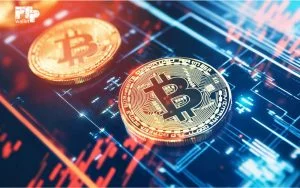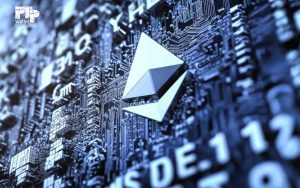Solana is a new blockchain protocol for massively scalable decentralized applications that also solves the problems of speed and cost. It is the first commercially viable and scalable network to power the decentralized web.
Its architecture is like a traditional database in which data and queries are always on fast storage. Underneath, it can process 50,000 transactions per second, which is more than most blockchain platforms.
Solana allows publishers to peerlessly monetize their content in a trustless environment without relinquishing control of their own data. With no central point of failure and a technical foundation designed for scaling indefinitely, Solana will soon bring blockchain technology into every browser worldwide, providing an alternative to the centralization inherent in Internet giants like Google and Facebook.
Its design is uniquely suited to be a backbone for other DApps as well as traditional websites that seek higher scalability than centralized servers can afford. It can also increase privacy by removing any user tracking or ad tracking that runs on centralized servers. Solana will also empower consumers and companies to host DApps on the blockchain to create more secure decentralized services.
Who are the Founders of Solana (SOL)?
Anatoly Yakovenko is the creator and co-founder of Solana. He previously worked at Dropbox, where he specialized in networks, distributed systems, and compression. Anatoly then spent three years as a Senior Staff Manager at Qualcomm, supervising multiple projects and performing special tasks.
According to the Solana website, Anatoly Yakovenko has been with the company since its inception in 2013. He is the CTO and Chief Scientist of Solana today, having graduated from the University of Illinois at Urbana-Champaign.
What is Solana (SOL) used for?
The SOL coin is a platform for decentralized apps in the blockchain. The coin offers tokenization to any number of assets, which can be used to create the tokenization of your own user-based community applications or just invest in other projects that you believe in. But what makes Solana different is its decentralized structure. The team behind this project prides itself on being able to let developers build DApps on their platform with “freedom from central control.”
Furthermore, through a network of these nodes, Solana claims they can deliver a better performance than centralized servers and other cloud-based platforms with more security and speed.
SOL tokens can also be used as an incentive for developers and miners to continue contributing to the platform. And by users who wish to send money quickly and easily across borders without having high transfer fees or high exchange rates unlike any other form of money transfer like PayPal or Western Union.
What Is the Unique Point of Solana (SOL)?
Solana is the world’s first decentralized, infinitely scalable blockchain. In a nutshell, it is a new blockchain architecture that provides unique features such as privacy, scalability, and energy efficiency that enable new kinds of decentralized applications to be built on top of the platform.
It achieves these goals by offering an innovative combination of two technologies: Proof-of-history (POH) and Proof-of-Stake (POS). Proof-of-history is an innovative new consensus mechanism developed by Anatoly Yakovenko that enables better scalability across the platform, which in turn boosts performance.
Scaling issues have been a problem for blockchains in general. However, the Solana team believes that their protocol can be self-sustaining without any large investments in capital or computing power.
How many Solana (SOL) is in circulation?
About 260 million Solana tokens are in circulation from a total market supply of 489 million.
The supply distribution of the Solana token is as follows:
* 12.92% of SOL coins were to be held for founding incentives.
* 16.23% of SOL coins were allocated towards an initial seed sale
* 12.79% of SOL coins were distributed among founding members and staff
* 10.46% of SOL coins were allocated to the Solana foundation
Is the Solana (SOL) Network secured?
The Solana (SOL) network is secured by the proof-of-history and proof-of-stake consensus mechanisms. Proof-of-history is achieved by tracking blocks and periodically confirming the integrity of each new block, allowing for a strong network and a low chance of double-spending.
Proof-of-stake achieves security through economic incentives where nodes earn coins based on mining. This ensures the network has a healthy participant base, which will lead to better security over time.
The combination of these two consensus mechanisms makes Solana a unique case in terms of security.
How do I buy Solana (SOL)?
Solana is available on the most exchange and trading platforms. If you are looking to purchase SOL coins, follow these steps:
Step 1:
Create an account on a trading or exchange platform.
Most platforms request personal details such as full name, Email, and password to get registered on their platform. Following that, you must prove your identity with a government-issued ID, driver’s license, or passport. Verification is performed to reduce fraud and protect your assets.
Step 2:
Place your order
You can fund your account with a debit card or a direct bank transfer after signing up and verifying your credentials. For platforms that allow you to buy SOL coins directly, enter the amount you want to buy and add it to your wallet.
Another option is to buy a more popular coin, such as Bitcoin, and then convert it to Solana (SOL) coin.



